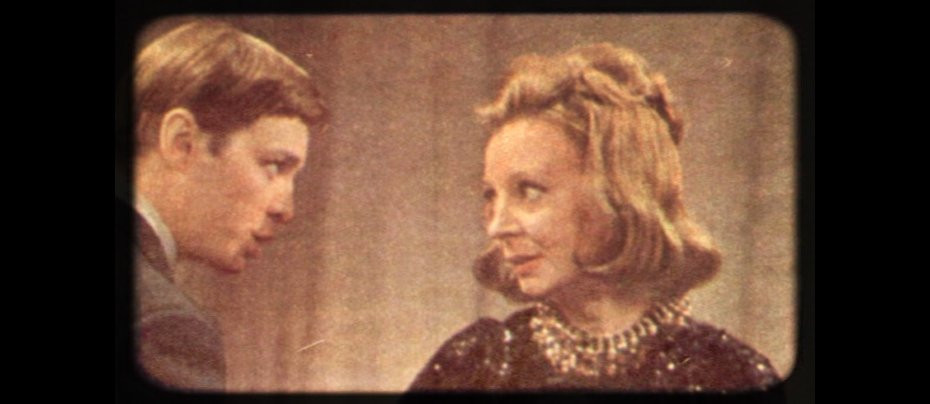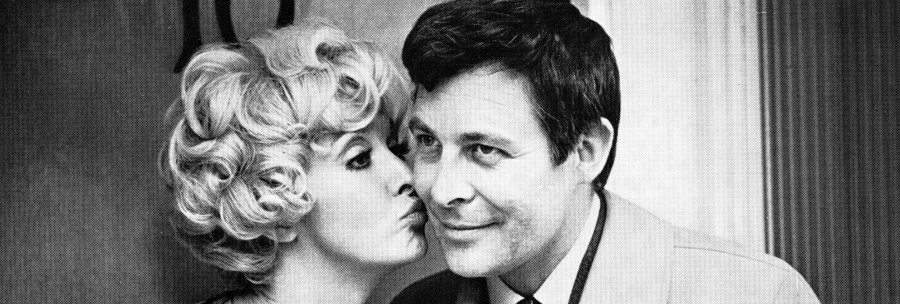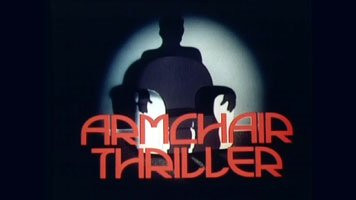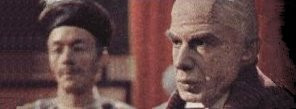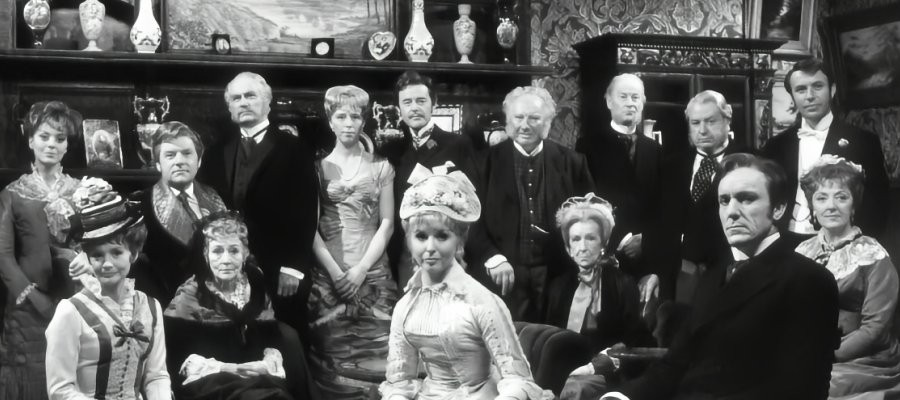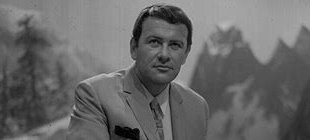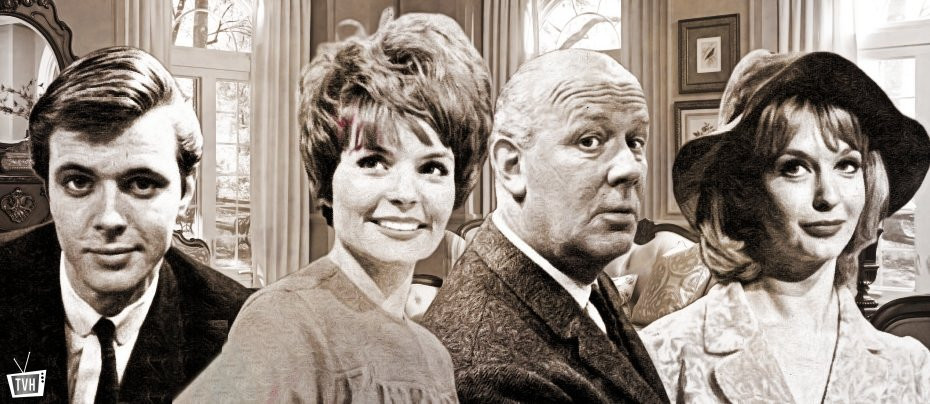
The Liars
1966 - United KingdomA ‘lost’ series from Granada Television in which the four stars of the show, William Mervyn, Isla Blair, Nyree Dawn Porter and Ian Ogilvy are all liars. Outrageous liars in fact, who try to outdo each other with the most fanciful lies they can dream up.
Written by Philip Mackie and Hugh Leonard who drew from a broad collection of stories from the works of famous authors such as Oscar Wilde, Lord Dunsany, William Plomer, Guy De Maupassant, Saki, William Samson, Anton Chekov, and Hugh Walpole, each episode packed in more than one story.
Nyree Dawn Porter (The Forsyte Saga, The Protectors) plays the vampish Hermione and setting the outrageous example they all admire is Sir Gerald Ingoldsby-French (William Mervyn - Mr Rose), baronet, clubman and boulevardier who revels in garnishing his tall-tales and who is the inspiration of his pretty 21-year old niece Sarah (Isla Blair) and his nephew Rupert (Ian Ogilvy – Return of The Saint)
Frivolous – The Liars believe that life is to be lived for amusement and delight in their endeavours to outdo each other with the most scandalous, far-fetched and implausible story. But is there a grain of truth anywhere to behold? That’s up to the viewer to decide once each tale has been told. Perhaps Gerald did work in a grubby little office in Paris that exchanged people’s misfortunes, maybe Hermione did know a handsome Swede who fell, Romeo style, 60ft from a balcony and straight out of love.
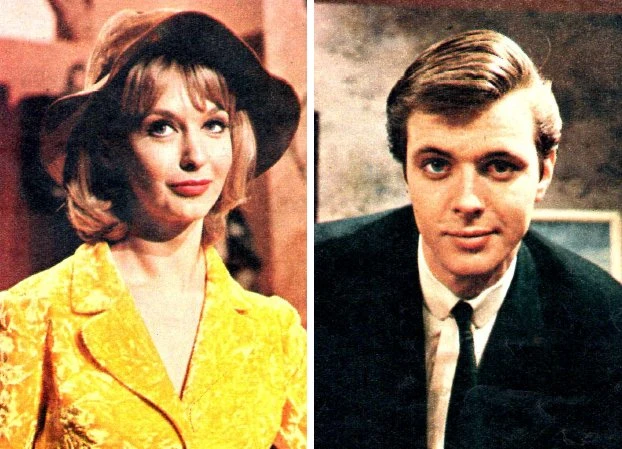
Each episode would have three or four separate stories told by The Liars from the comfort of their living room but acted out by the guest cast over the thirteen episodes that ran from January to March 1966 (9.40pm on Friday nights in most network areas, but on Thursday nights in London). The stars that appeared included Ursula Howells, Angela Thorne, Fabia Drake, Jack Woolgar, Frederick Jaeger, Wanda Ventham, Bill Fraser, Patrick Troughton, Richard Wattis, Freddie Jones, Roy Marsden, Michael Bangerter, Terence Alexander, John Woodvine, Frank Thornton, Roy Dotrice, Gerald Campion and Sheila Steafel.
In fact, if it wasn’t for Steafel there would be no visual record of the show at all, the tapes having been wiped long ago. If you take a look at YouTube you will find a single story starring William Mervyn, Isla Blair and Steafel, which was loaded from the late actress’ personal archive. In A Bicycle Made for Two, Sir Gerald tells the sad, but rather comic tale of Chrissie (Steafel), who, starved of affection by her family, came to believe she was a bicycle. She eventually drowned her sorrows—in food. In another story, Sir Gerald tells of a friend who was granted three jokes by the Devil. The bigger the lie the more hilarious or macabre the result.
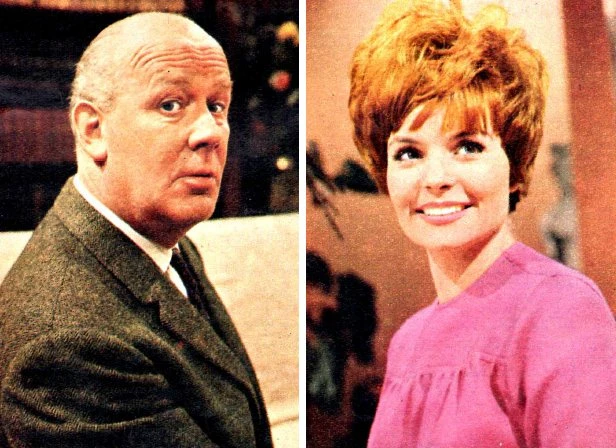
Sheila Steafel may well have been able to write a story for the series herself after admitting to a lie of her own. She told the press: "While I was a student I was 'potty' over a boy who thought himself something of an amateur hypnotist," He tried to hypnotize me at a party. Just to please him, I acted out all his instructions. I even packed a suitcase to take to Edinburgh, and only 'came out of the spell' when everybody panicked as I was about to phone for a taxi to the station. I didn't have the heart to confess it was a hoax at the time, but I told him when I saw him recently. Apparently, for the past 10 years he has gone around telling everybody how he successfully hypnotized me."
Reviewing the series in The Stage, critic Marjorie Norris was taken with the promise that the first episode showed:
An ingenious way of presenting short stories of an elusive charm such as would not stand up to the full dramatisation treatment has been devised by Philip Mackie; and transmission of the first edition of The Liars calls for due acknowledgement of that ingenuity. The trailest of links allowed us to see tales originating from four masters of the short story Stacy Aumonier (Miss Bracegirdle Does Her Duty), Anatole France (Heffernan), Lord Dunsany (The Misfortune Office), and William Sansom (Tutti-Frutti)---all of them very freely adapted by Philip Mackie and Hugh Leonard.
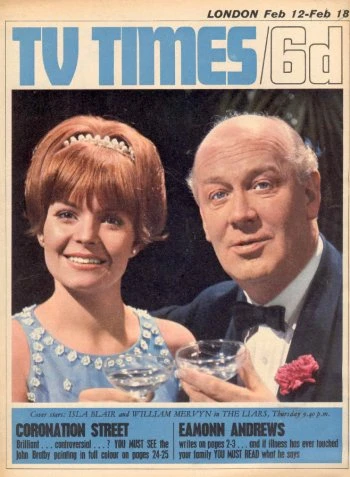
The result was as sparkling as fizzy lemonade. Deliciously refreshing if it happens to be what you fancy at the time but without any lasting kick. Reiterated and heavy-handed reminders that Sir Gerald, Hermione, Sarah and Rupert are dedicated and compulsive liars killed the irony of the first and the last stories and destroyed the splendid veracity of Lord Dunsany's style in the third.
The tendency to over-stress the lying propensities of the four regular characters was also seen in the performance of the actors playing them. It must be assumed that this was required of them by director David Cunliffe as a result of a preliminary briefing from producer Philip Mackie. Least affected by this particular brand of self-consciousness was William Mervyn who, by adopting the arrogance of his Inspector Rose, defied us to disbelieve Sir Gerald.
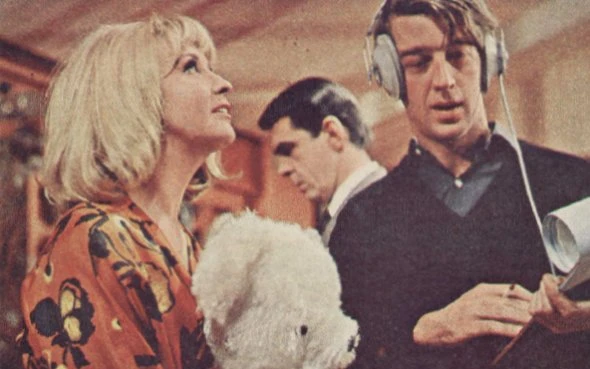
He also had the advantage of a longish opening sequence in which he had time to establish his ascendancy over his captive audience (played with suitable petulance by Anthony Roye). The three others were not given similar opportunities to make a personal impact and Nyree Dawn Porter, in particular, seemed to be straining at the leash in brief appearances that were little more than mannered continuity links. The visiting cast gave full value to roles that were necessarily short-lived. Ursula Howells, as Miss Bracegirdle, carried herself with serious desperation that was welcome because it would have been so easy to overdo the fluttering and old-maidishness. Fabia Drake gave richness to one of her battleaxes by adding an overlay of genteel charm. Ivor Sailer was a village policeman with entirely acceptable touches of Toy Town's immortal Ernest; and Polly Murch was the essence of gushing bores.
To return to my first point. This is an ingenious idea and if subsequent editions can acquire rather more of the "look you straight in the eye" quality of the born liar and less of the nudge and wink approach of the pub raconteur all may yet be very well with a series that holds so much promise.
(The theme tune, by The Magicians is also a rare survivor of the series and can also be heard of YouTube.)
Seen this show? How do you rate it?
Seen this show? How do you rate it?
Published on December 9th, 2022. Written by Marc Saul for Television Heaven.



